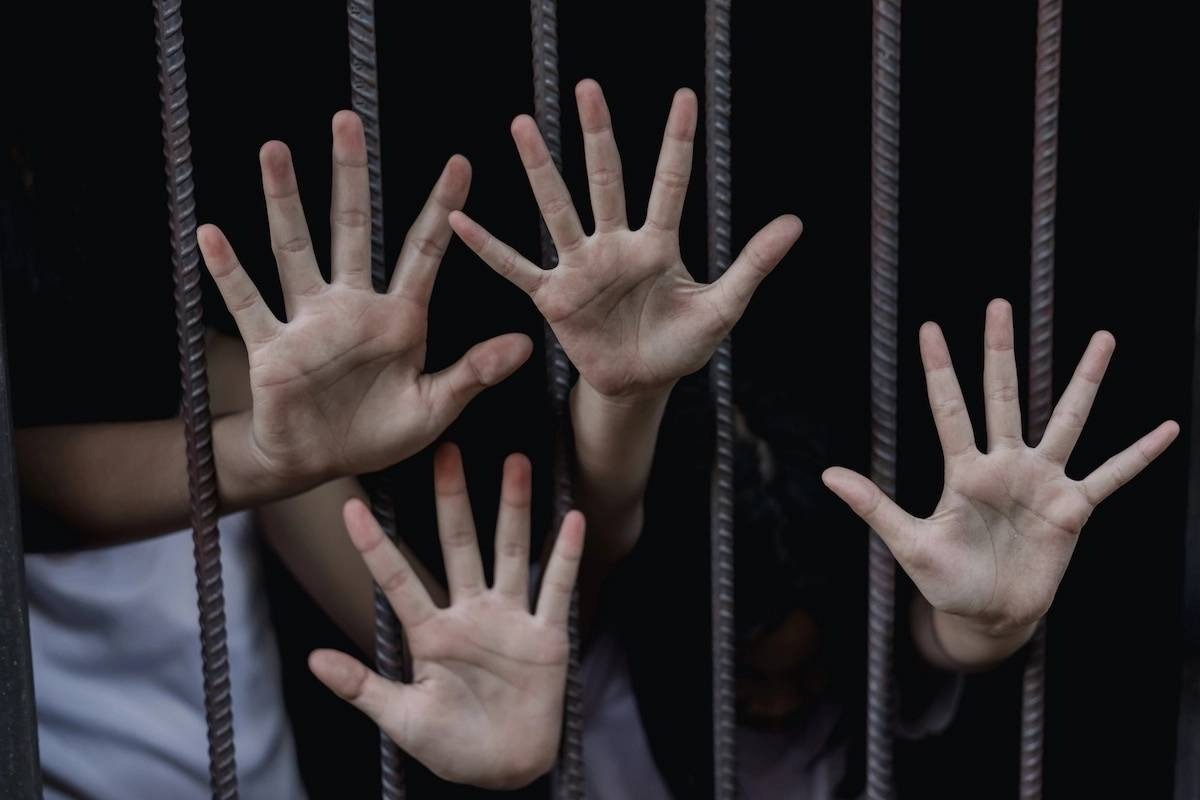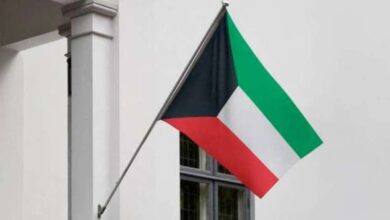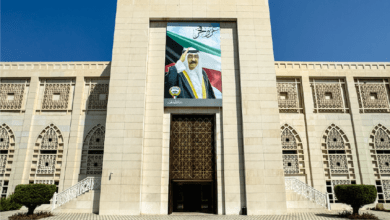Human trafficking a stain on our collective conscience

World Day Against Trafficking in Persons, observed each year on 30 July, aims to raise awareness of human trafficking, and the plight of victims, as well as the need to combat this pernicious phenomena, and strengthen safeguards against it. The theme for this year’s World Day Against Trafficking in Persons (WDATIP), ‘Leave No Child Behind in the Fight Against Human Trafficking’, reflects the fact that globally one in three victims of human trafficking is a child.
The United Nations ‘Protocol to Prevent, Suppress and Punish Trafficking in Persons, especially Women and Children’, is the main legal arsenal to combat trafficking worldwide. The protocol is part of the larger United Nations Convention on Transnational Organized Crime (UNTOC), and the UN Office on Drugs and Crime (UNODC) is the nodal agency for UNTOC and its protocols.
Kuwait ratified the UNTOC and its protocols in 2006 and has exerted all efforts to prevent and combat human trafficking and other violations of human rights. In addition to introducing legislations and implementing enforcements, the government has also launched several public awareness campaigns to raise awareness and highlight the need to prevent human trafficking and protect victims.
The UNODC defines human trafficking as the recruitment, transportation, transfer, harboring or receipt of people through force, fraud or deception, with the aim of exploiting them for profit. Human trafficking basically involves exploiting men, women, and children for various illegal purposes, including forced labor and sex. Every country in the world is affected by human trafficking, whether as a country of origin, transit, or destination of victims.
Kuwaiti anti-trafficking legislation has been shaped in a way that promotes the principles of human rights in a broader sense that includes the fight against human trafficking. However, more than legislations and enforcements, or the need to comply with international conventions and protocols, Kuwait’s anti-human trafficking initiatives stem from the country’s deeply ingrained humanitarian and religious ethos.
Last week, in a statement on the occasion of WDATIP, Minister of Justice Minister Mohammad Al-Wasmi highlighted the country’s progress in combating human trafficking and other forms of human rights violations. He noted that Kuwait’s existing human rights legislations and systems, as well as recent judicial reforms provide wide protection to the most vulnerable sections of society, in particular to women and children.
Minister Al-Wasmi also pointed out that Kuwait has formed a national ad hoc committee that includes representatives from various state entities, to implement anti-human trafficking measures and devise strategies aimed at preventing human trafficking of men, women and children, in particular of migrants, as well as providing protection to victims of trafficking and other human rights violations.
The 2022 Global Report on Trafficking in Persons (GLOTIP) published by the UNODC shows that the vast majority of victims of trafficking for sexual exploitation are girls and women, and they are three times more likely to suffer explicit or extreme violence compared to boys and men. Women and children are also at higher risk of experiencing physical violence during trafficking as compared to men, and that children are twice as likely as adults to face violence during trafficking.
According to the GLOTIP, online platforms also pose an additional risk to children as they interact through these sites often without adequate safeguards. Traffickers exploit the lax online environment to lure children into trafficking for various purposes. These include forced labor, crime, begging, illegal adoption, organ removal, sexual abuse and the online dissemination of abusive images, as well as to recruit them into armed groups.
Reasons for child trafficking are just as numerous as the purposes of trafficking them. Among the reasons identified for child trafficking are poverty, lack or breakdown of social protections, dysfunctional families, absence of parental care, environmental crises, and armed conflicts, as well as the absence of support for unaccompanied minors during the increasing number of migration and refugee flows in recent years.
In addition, armed conflicts and natural calamities that exacerbate vulnerabilities and displace people create an environment that traffickers exploit. Threats and violence or fake promises of education, job opportunities, and a better life are used to coerce or cheat victims into being trafficked. Men, women and children of all ages, backgrounds, and nationalities can become victims of human trafficking.
The GLOTIP report also emphasizes that to date, the fight against human trafficking has not been effective, and that there is an urgent need to take comprehensive measures to address trafficking and provide protection to victims, especially vulnerable groups. This requires joint efforts at national and international level, with countries taking measures to prioritize the protection of victims and people at risk, strengthen laws, and improve law enforcement.
In Kuwait, the Public Authority of Manpower (PAM), which is the primary entity mandated to oversee all labor-related matters, has reiterated its commitment to fighting human trafficking and protecting the rights of migrants. In a recent statement the Authority stressed its focus on safeguarding the dignity and rights of migrant workers, a crucial component of which is the prevention of human trafficking and the protection of migrant rights.
The Authority noted that it plays a pivotal role in ensuring the well-being of migrant workers, including by operating a dedicated shelter that provides essential support and safety to migrant workers in need. Furthermore, PAM actively enforces the country’s stringent anti-human trafficking laws, in coordination with other entities to protect the rights of migrant laborers.
PAM spokesperson and Chairperson of the Permanent Coordination Committee, Aseel Al-Moayed, emphasized the complex nature of human trafficking and the necessity of a united front to combat it effectively. She underlined the importance of collaboration among government entities, civil society organizations, and international bodies to address this pressing issue.
Considering the importance of public awareness in preventing human trafficking, the Authority, in collaboration with the Labor Union, the Kuwait Chamber of Commerce and Industry, and the National Committee for the Prevention of Human Trafficking, organized an awareness-raising event to coincide with the World Day Against Human Trafficking on 30 July at the Avenues Mall. The event aimed to educate people about human trafficking, and to stress the importance of collective action and international cooperation in eradicating human trafficking.
The International Organization of Migration (IOM) in Kuwait also underlined the need for international cooperation to prevent human trafficking. Chief of the IOM-Kuwait Mission, Mazen AboulHosn stated that combating the trafficking in persons and assisting victims is one of the priorities of IOM. He noted that the IOM Kuwait Mission has been working for nearly 14 years in cooperation with Kuwait and international entities to strengthen mechanisms and initiatives to combat human trafficking and to enhance protection and support systems for victims.
Trafficking in persons is a heinous crime and a grave violation that deprives victims of their human rights and individual dignity. Reports show that every year tens of thousands of men, women and children fall victim to trafficking, both in their own countries and abroad. Everyone, from governments and civil society organizations, to businesses and individuals should join hands to prevent this egregious activity and protect the victims.
Human trafficking can occur within states, but it is more likely to be transnational, involving a country of origin, transit and destination. Efforts to prevent international trafficking cannot succeed without cooperation, coordination and concerted efforts among all involved countries and regions, as well as support from international entities. Identifying all the concerned countries and working closely with the governments and relevant entities there is vital to effectively tackle and end the scourge of human trafficking.












